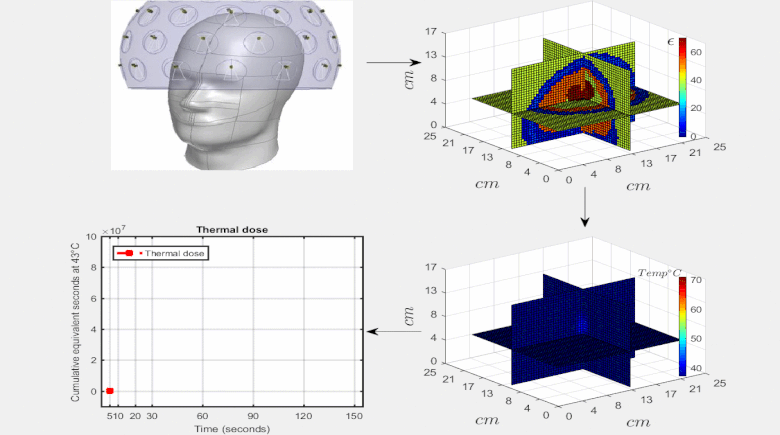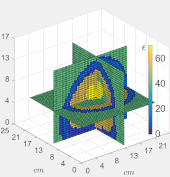
Minimally invasive thermal treatments, such as microwave ablation, have emerged as safer, faster, and more precise alternatives to surgery for many soft tissue cancers, including liver and kidney. Their efficacy and applicability to higher-risk cases (e.g., close proximity to blood vessels or in the brain) remains limited due to the lack of clinically available monitoring systems for precise thermal dose delivery. To address this, a real-time microwave imaging system is developed to provide live, 3D thermal monitoring. Our real-time thermal monitoring method is predicated on using microwaves to image changes in the dielectric properties of tissue with changing temperature. Instead of the precomputed linear Born approximation used in prior work to speed up the frame-to-frame inversions, we use the nonlinear Distorted Born Iterative Method (DBIM) to solve the electric field volume integral equation to image the temperature change. This is made possible by using a recently developed GPU-accelerated conformal finite difference time domain (CFDTD) method to solve the forward problem and update the electric field in the monitored region in each DBIM iteration. Compared to our previous work, this approach provides a far superior approximation of the electric field within the volume integral equation (VIE), thereby yielding a more accurate reconstruction of tissue temperature change. The proposed method is validated using a realistic numerical model of interstitial thermal therapy for a deep-seated brain lesion. Using this new method with the DBIM, we reduced the average estimation error of the mean temperature within the region of interest from 2.5o C to 1. 0o C for the noise-free case, and from 2.9 o C to 1.7 o C for the 2% background noise case.

